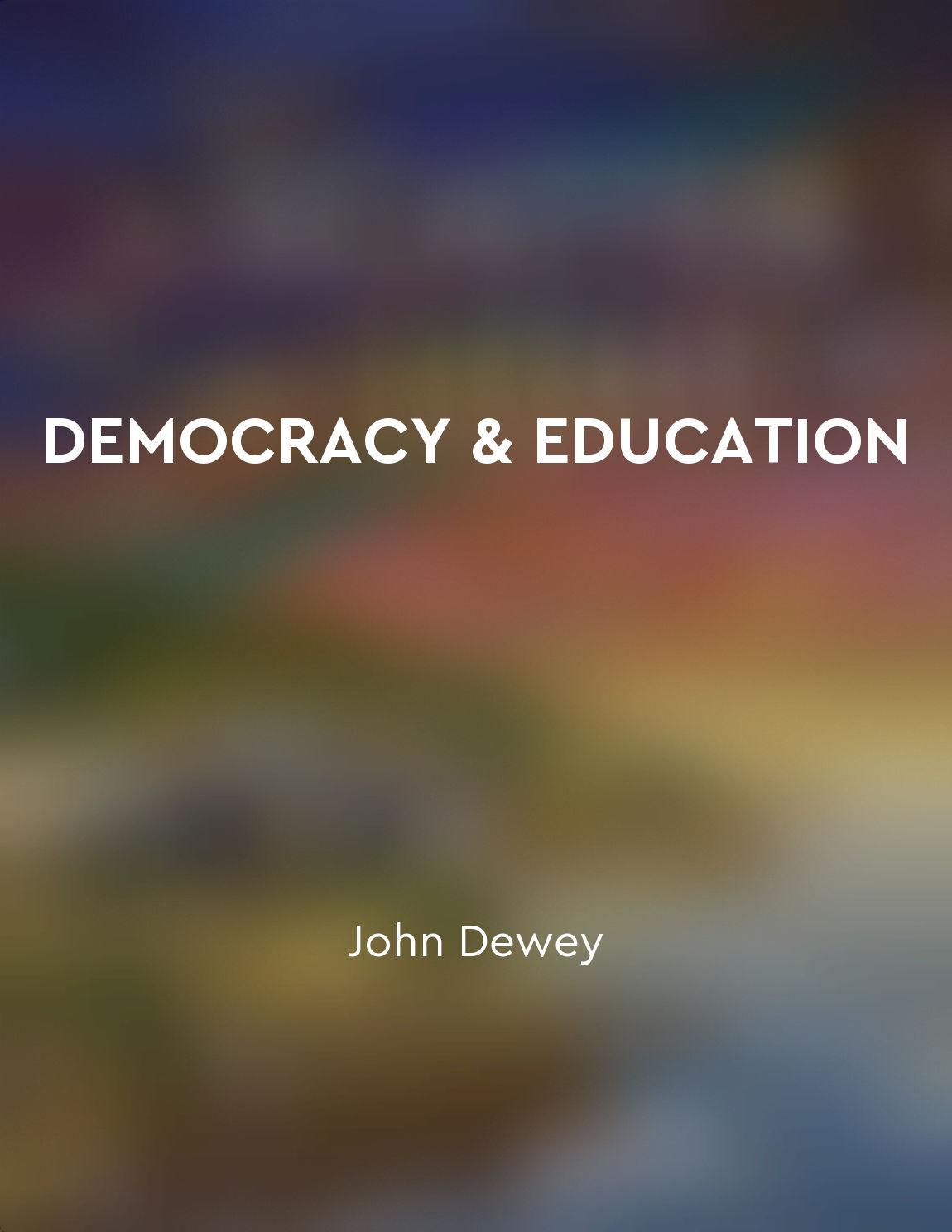Education is political from "summary" of Pedagogy of the Oppressed by Paulo Freire
The relationship between education and politics is undeniable. Education is not neutral or objective; it is always intertwined with power dynamics and social structures. The way knowledge is constructed, transmitted, and valued is shaped by the political interests and ideologies of those in positions of authority. In a society where certain groups hold power and privilege, education becomes a tool for maintaining the status quo. The curriculum, teaching methods, and assessment practices reflect the values and perspectives of the dominant group, often marginalizing and oppressing those who do not fit into the mold. This perpetuates inequality and injustice, reinforcing existing power imbalances. Furthermore, the education system itself is a site of struggle for power. Those in power seek to control and shape the minds of the younger generation, molding them into compliant citizens who will perpetuate the existing social order. This is done through a process of banking education, where knowledge is deposited into passive learners who are discouraged from questioning or challenging the status quo. In contrast, critical pedagogy seeks to disrupt the politics of education by empowering students to become critical thinkers and agents of change. By problematizing the dominant narratives and encouraging dialogue and reflection, educators can help students to become aware of the social, political, and economic forces that shape their lives. This is a form of emancipatory education that aims to liberate individuals from oppression and enable them to participate actively in transforming society.- Education is a political act that has the power to either reproduce or challenge existing power structures. By recognizing the political nature of education, we can work towards creating a more just and equitable society where all individuals have the opportunity to develop their full potential and contribute to the common good.
Similar Posts
Action research empowers educators
Action research is a powerful tool that allows educators to take control of their own professional development. By engaging in ...
The hidden curriculum can reinforce or challenge dominant narratives
The hidden curriculum, which consists of the values, norms, and beliefs that are transmitted implicitly through the structure a...
The importance of empathy in teaching
Empathy plays a crucial role in the teaching process as it allows educators to connect with their students on a deeper level. B...
Education can be a site of resistance and liberation
Education can be understood as a complex social institution deeply intertwined with power relationships and social hierarchies....
Monarchical rule undermines freedom
Monarchical rule, by its very nature, is a system that concentrates power in the hands of a single individual - the monarch. Th...
Curriculum decisions shape students' understanding of power
The decisions made about what is to be included in the curriculum have a profound influence on how students come to understand ...

Education should prepare students for democratic participation
The purpose of education is not simply to impart knowledge and skills, but to cultivate the habits and dispositions necessary f...
Critical thinking is essential for making informed decisions
Critical thinking lies at the heart of the decision-making process. It is the ability to analyze information objectively and ma...

